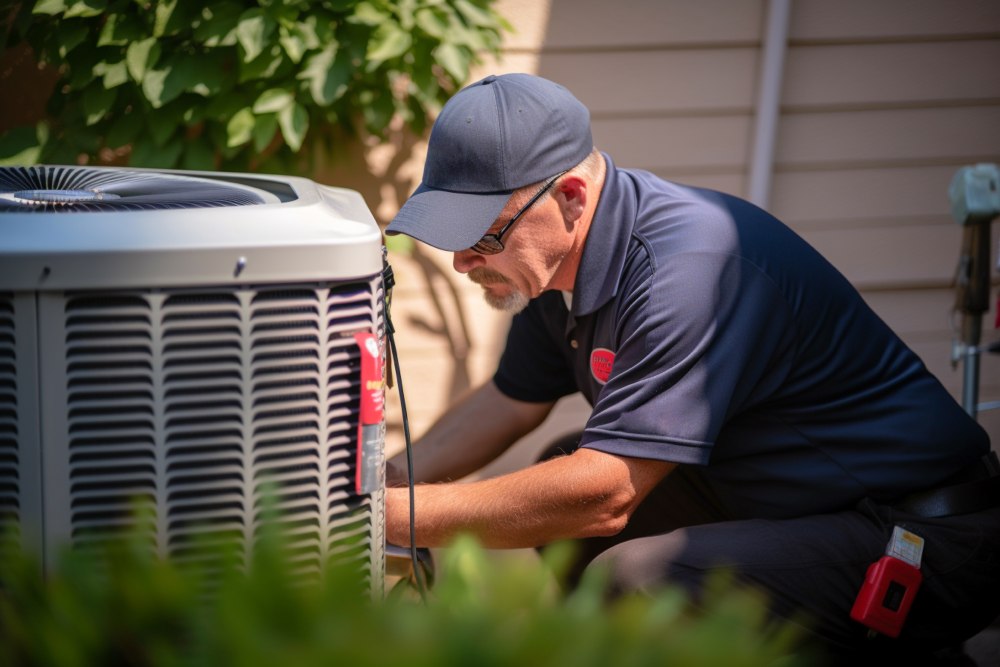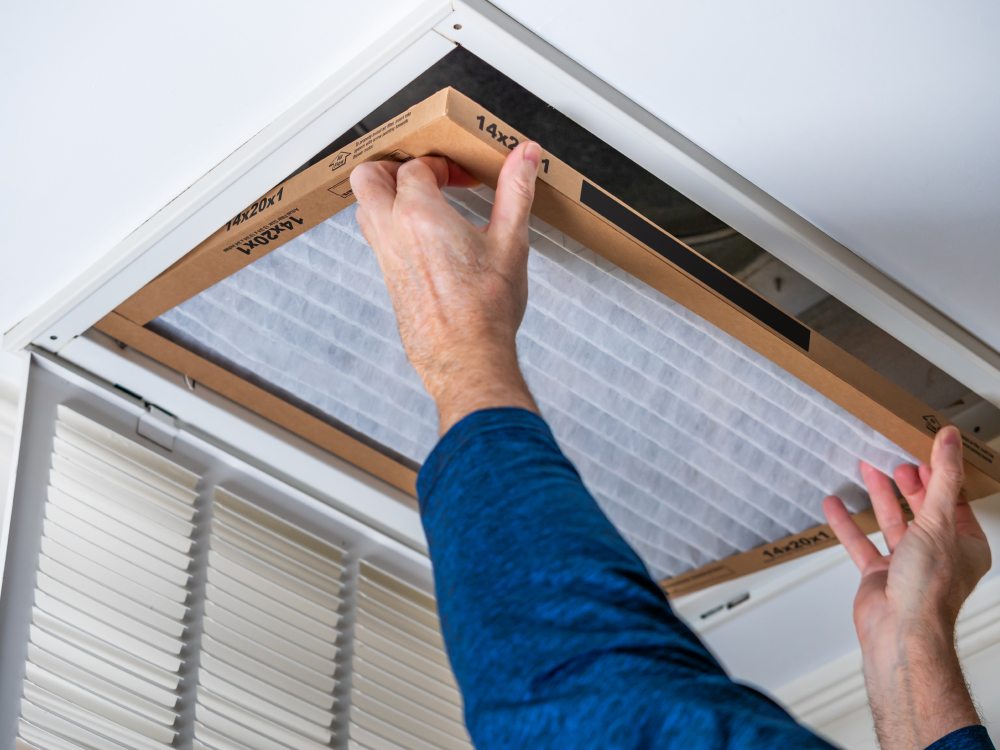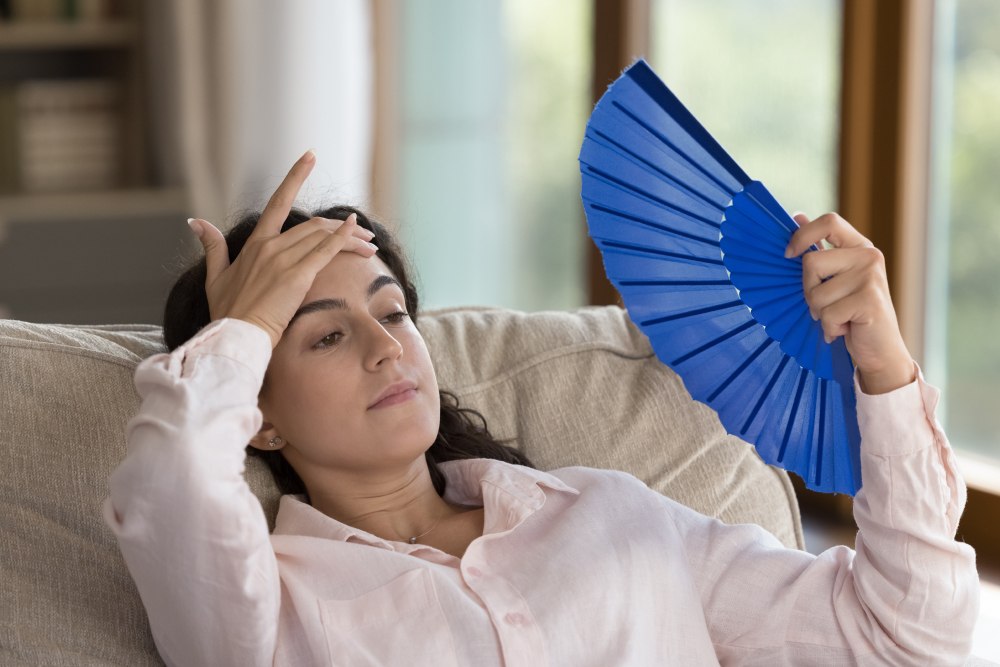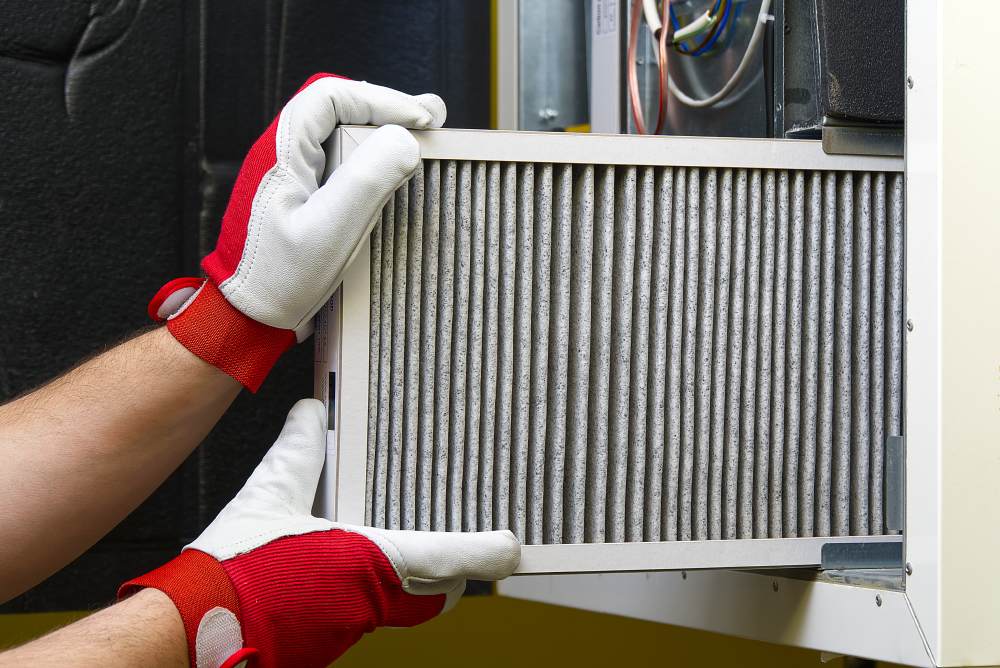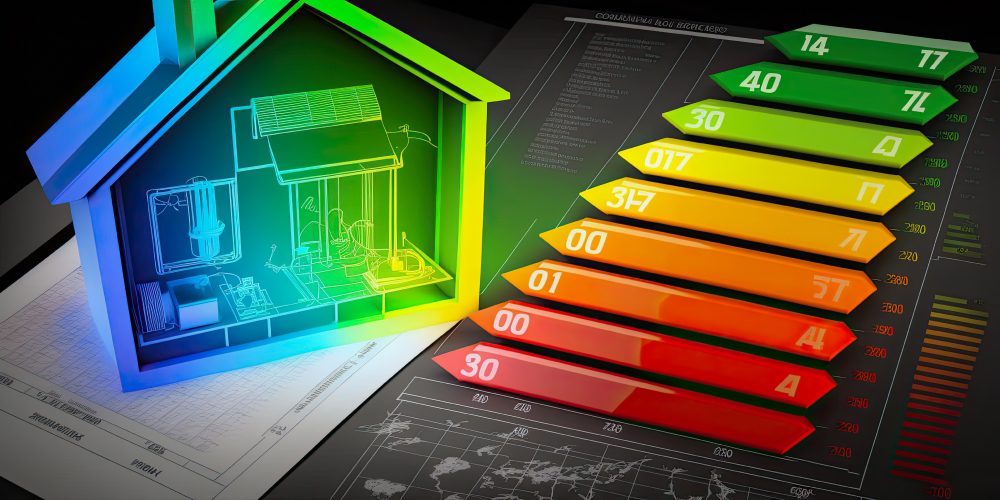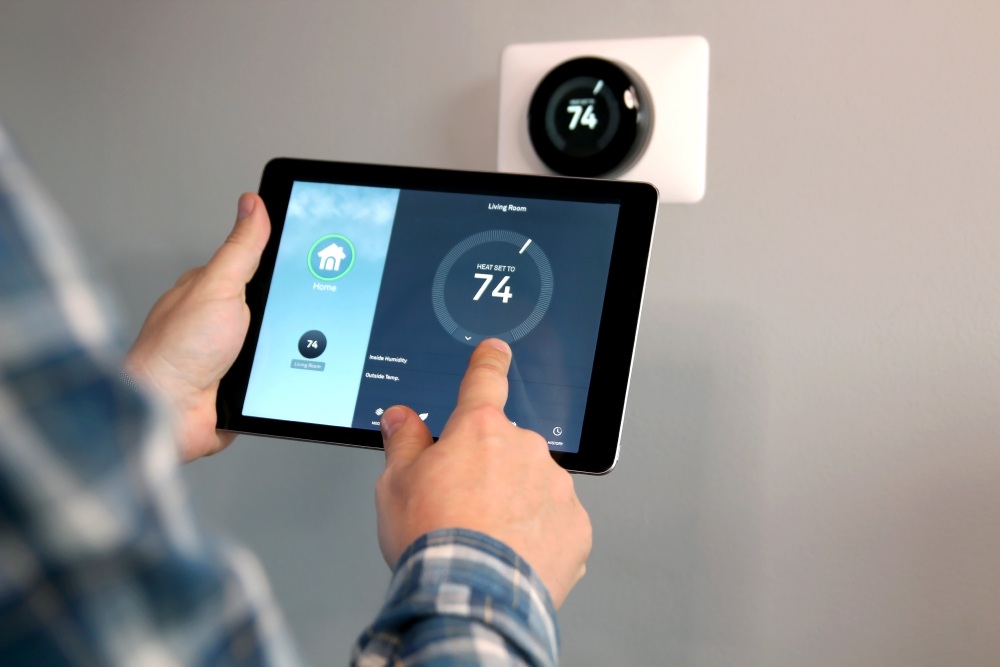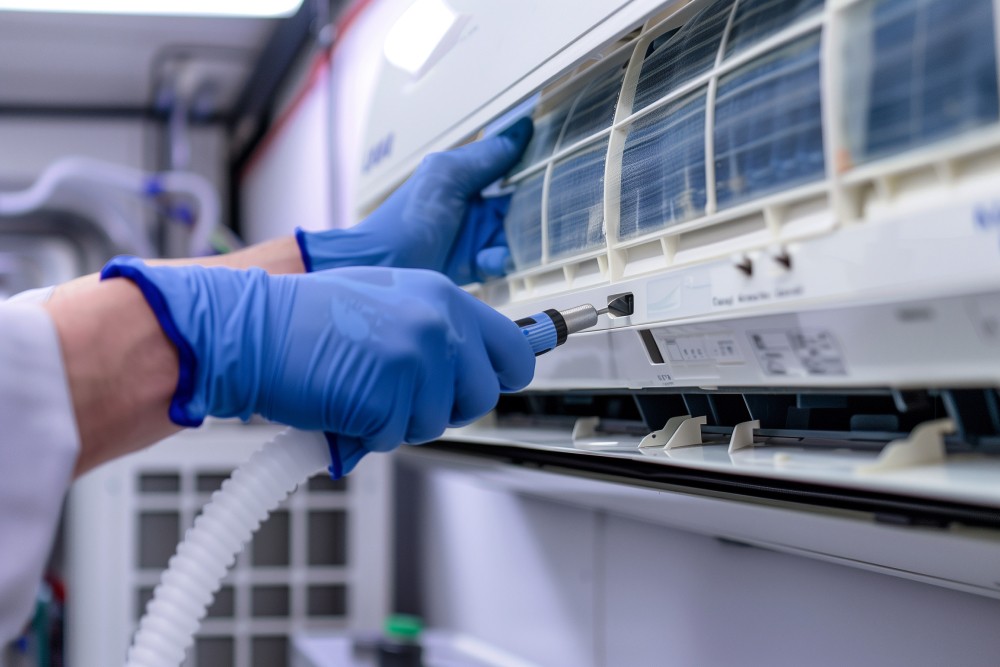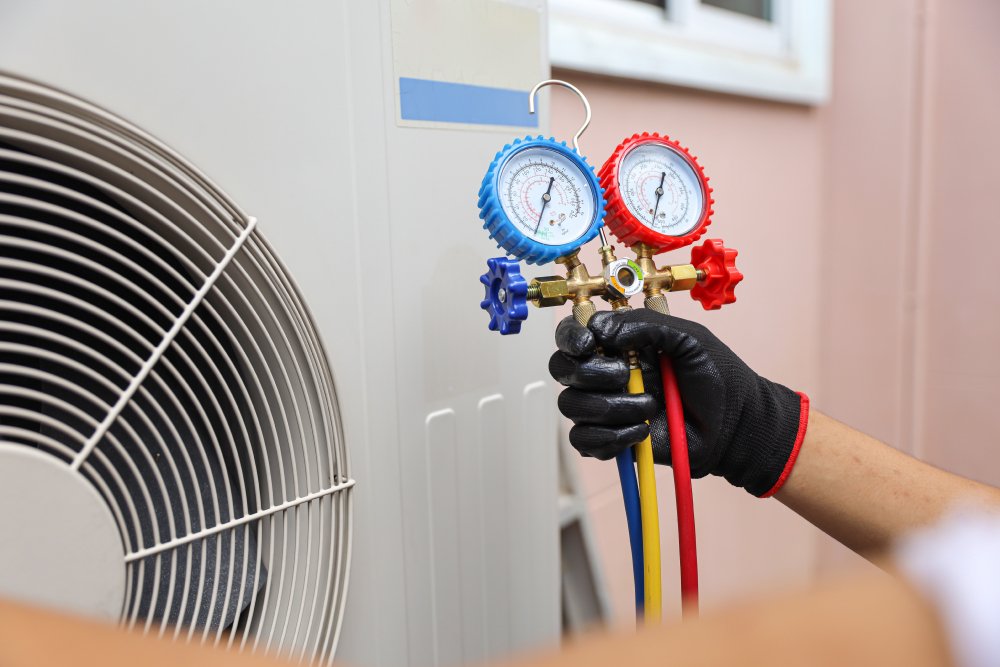As temperatures rise, the comfort of a well-cooled home becomes essential. Choosing the right air conditioner for your needs can be a daunting task, given the variety of options available on the market. This comprehensive guide will help you understand the different types of air conditioners, their benefits and drawbacks, and how to select the best one for your home.
Types of Air Conditioners
- Window Units
- Description: Window air conditioners are self-contained units that fit into a window or a slot in the wall. They are the most common type of air conditioner for single rooms.
- Pros:
- Easy to install and remove.
- Relatively affordable.
- Suitable for cooling small spaces.
- Cons:
- Can be noisy.
- Blocks the window view.
- Limited to cooling one room at a time.
- Portable Units
- Description: Portable air conditioners are freestanding units that can be moved from room to room. They come with a hose that vents out of a window or through a wall opening.
- Pros:
- Highly flexible and mobile.
- Easy to install without permanent modifications.
- Ideal for renters.
- Cons:
- Less efficient compared to window units.
- Requires regular emptying of water collection trays.
- Can be bulky and take up floor space.
- Central Air Conditioning
- Description: Central air conditioning systems cool the entire home through a network of ducts. The system includes an outdoor unit (compressor and condenser) and an indoor unit (evaporator).
- Pros:
- Provides even cooling throughout the house.
- Quieter operation compared to window or portable units.
- Can improve indoor air quality with proper filtration.
- Cons:
- Expensive to install and maintain.
- Requires ductwork, which may not be feasible in all homes.
- Higher energy consumption.
- Ductless Mini-Split Systems
- Description: Ductless mini-split systems consist of an outdoor compressor and one or more indoor air-handling units, connected by a conduit. Each indoor unit can be controlled independently.
- Pros:
- Energy-efficient and customizable.
- Quiet operation.
- No need for ductwork.
- Cons:
- Higher upfront cost compared to window units.
- Professional installation required.
- Indoor units can be less aesthetically pleasing.
Join HICP Homeowner’s Alliance
Connect with experts, get special discounts and enjoy member benefits
Factors to Consider When Choosing an Air Conditioner
- Room Size and Cooling Capacity
- Air conditioner capacity is measured in British Thermal Units (BTUs). The larger the room, the higher the BTU rating needed. A unit that is too small will struggle to cool the space, while one that is too large will cycle on and off too frequently, wasting energy and not dehumidifying properly.
- Tip: Measure your room’s square footage and consult a BTU chart to find the appropriate capacity for your needs.
- Energy Efficiency
- Look for units with a high Energy Efficiency Ratio (EER) or Seasonal Energy Efficiency Ratio (SEER) rating. Higher ratings indicate better energy efficiency, which can save you money on utility bills.
- Tip: Consider Energy Star-rated models for the best efficiency.
- Noise Levels
- Noise can be a significant factor, especially if the unit will be installed in a bedroom or living area. Check the decibel (dB) rating of the unit before purchasing.
- Tip: Generally, central air systems and ductless mini-splits are quieter than window and portable units.
- Installation and Maintenance
- Consider the ease of installation and ongoing maintenance requirements. Some units, like window and portable air conditioners, are easier to install but may require more frequent maintenance.
- Tip: Ensure you have access to a reliable HVAC professional for installations and repairs.
- Cost
- Evaluate the initial cost of the unit, installation fees, and long-term operating costs. While central air systems and ductless mini-splits have higher upfront costs, they may offer savings in energy efficiency over time.
- Tip: Set a budget that considers both short-term and long-term costs.
Additional Features to Consider
- Smart Connectivity
- Many modern air conditioners offer smart features, such as Wi-Fi connectivity, allowing you to control the unit remotely via a smartphone app.
- Benefit: Enhanced convenience and potential energy savings by adjusting settings on the go.
- Programmable Thermostats
- Units with programmable thermostats can be set to operate at specific times, reducing energy consumption when cooling is not needed.
- Benefit: Increased control over your cooling schedule and energy savings.
- Air Purification
- Some air conditioners come with built-in air purifiers, dehumidifiers, or ionizers to improve indoor air quality.
- Benefit: Added health benefits and enhanced comfort.
- Directional Airflow
- Adjustable louvers or vents allow you to direct the airflow to specific areas, improving the overall cooling efficiency.
- Benefit: Targeted cooling for enhanced comfort.
Choosing the right air conditioner for your home involves considering various factors, from the size and layout of your space to energy efficiency and noise levels. By understanding the different types of air conditioners and their features, you can make an informed decision that will keep your home comfortable and your energy bills in check. Whether you opt for a window unit, portable unit, central air system, or ductless mini-split, the key is to find a solution that meets your specific needs and preferences.

